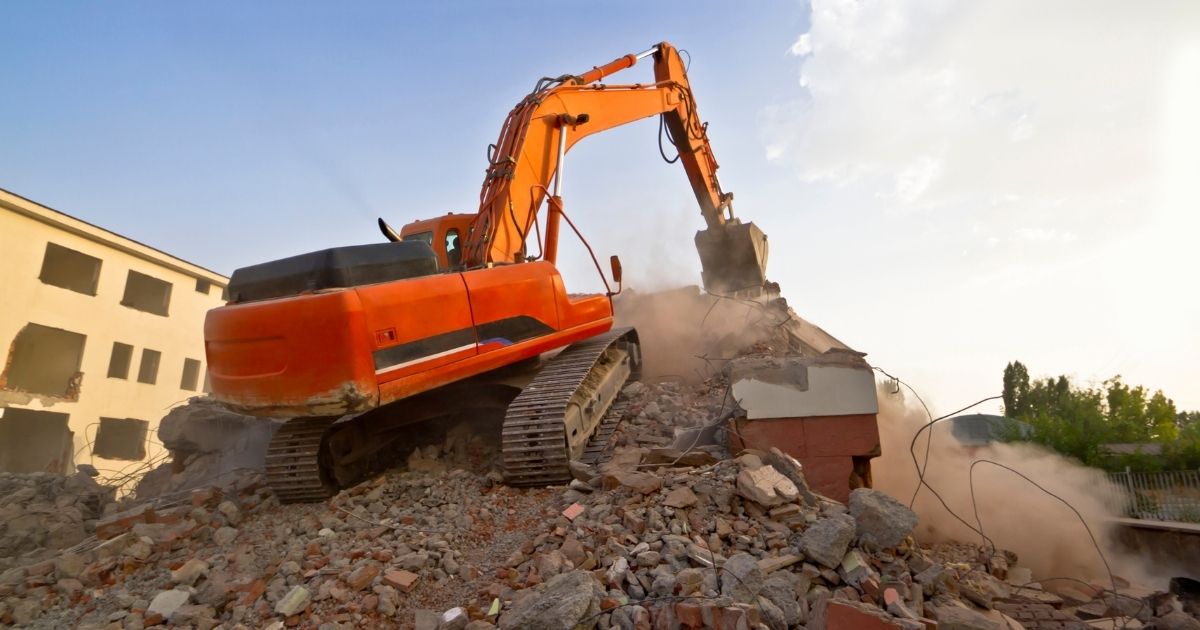Demolition workers face similar hazards to construction workers, but they also face additional hazards because of the specific work they do. Just because a job is inherently dangerous does not mean you agree to injure your body. That is why if you get injured at work, you may be entitled to compensation from your employer’s workers’ compensation policy. To find out if your injury qualifies and to learn your next steps, speak with a trusted legal advocate today.
Demolition Workplace Dangers
Demolition work is always dangerous. According to the Occupational Safety and Health Administration (OSHA), demolition workers face workplace dangers because of the nature of their work — so many dangers simply are not known. Workers often come into contact with materials hidden in the walls, like asbestos. There may be unknown building materials and demolition workers do not know how to properly disassemble components.
For many older buildings and structures, plans, permits, designs, and modifications have been lost or misplaced. This means that demolition workers could be walking into a building that has unapproved modifications that altered the original structural design of the building. This could lead to unknown dangers as they begin demolition on the property.
OSHA lists their most deadly hazards, called the fatal four. These are the four most common causes of deadly accidents on construction sites:
- Caught inside or in between large objects
- Electrical exposure
- Falls
- Struck by an object
Unfortunately, demolition workers often face all four hazards at the same time. As a precaution, demolition workers must take extra care to ensure their safety and the safety of their colleagues.
How to Keep Demolition Workers Safe?
Every employer is required to provide a safe working environment for their employees. Even in dangerous jobs like demolition, employers must take steps to support their employees’ safety.
- Companies must provide training. Not only do employers need to give employees training about how to do their specific job and how to use the tools required for it, they must provide regular training on safety procedures. Employers must instruct employees how to identify dangers and how to address those dangers. Whether that means dealing with the situation or vacating the site, employers are required to provide detailed and ongoing training for workers.
- Companies and workers must plan. Planning a demolition job is not easy. It requires many experts to be involved in the process, considering seemingly endless possibilities for disaster. It requires understanding what needs to be demolished and how it was built. Taking something apart is often more difficult and dangerous than putting it together.
- Employers need to provide protective equipment. Construction workers need to have protective equipment. Demolition workers need even more. Employers are required to determine what protective equipment is required for the demolition crews and to provide all of it, as well as the training required to use the equipment. This includes eye protection, face shields, helmets, ear protection, respiratory protection, among many other types of protective equipment.
Workers’ Compensation
Even if you and your employer have taken all the necessary precautions and steps, you may still get injured working in demolition. Your injuries may be severe enough to put you out of work for an extended period of time. Fortunately, you may be able to get financial assistance under your employer’s workers’ compensation policy.
With few exceptions, every employer is required to carry workers’ compensation. This is a type of “no-fault” insurance, meaning that unless you intentionally injured yourself, you will probably be able to collect benefits, but the benefits you can collect are limited to missed paychecks and medical bills.
Depending on the severity of your injuries, these two items could be a substantial amount of money. But workers’ compensation is provided by an insurance company and they are not in the business of shelling out maximum benefits to every person injured at work. You may need the help of an aggressive legal advocate who can help you make your case and get the benefits you are entitled to under your employer’s policy.
Other Legal Options
If your injuries are severe and you were injured on a construction site, you may have other legal options. While you cannot file a personal injury claim against your employer, you may be able to file one against a third party if they contributed to your accident and injuries. For example, if you are working on a construction site where multiple companies are operating and you are injured while working with an employee from one of those other companies, you may have a personal injury claim against that worker and their employer. Since every employer is required to adequately train their employees, if you can prove the employer failed to do so, you may be able to collect additional damages from them.
Why is this important? Because your damages could be substantially increased through the potential collection of money for:
- Emotional distress
- Loss of companionship
- Loss of life enjoyment
- Lost earning potential
- Pain and suffering
- Rehabilitation costs
While you cannot double dip — you cannot collect money from your employer’s workers’ compensation insurer for lost income and the third-party company — you can supplement your workers’ compensation benefits with these other non-economic damages. Getting this additional compensation can help you avoid financial hardship after your demolition accident.
A Cherry Hill Workers’ Compensation Lawyer at Pietras Saracino Smith & Meeks, LLP, Helps You Get the Benefits You Need
Demolition work is dangerous. If you are injured while working in demolition, speak with one of our experienced Cherry Hill workers’ compensation lawyers at Pietras Saracino Smith & Meeks, LLP. Contact us today at 856-761-3773 or contact us online to schedule your free consultation. With offices in Cherry Hill, New Jersey, we proudly serve our neighbors in Camden, Cinnaminson, Delran, Maple Shade, Pennsauken, and South Jersey.







